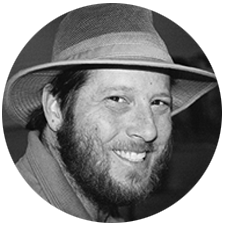On September 19, 2010, I suffered the greatest loss of my life. My husband, Donald James (DJ) Sterner died unexpectedly and needlessly due to a food poisoning infection he contracted while an inpatient at a Texas hospital. In short, his intestines were broken down by Clostridium perfringens bacteria and leaked into his bloodstream, causing organ failure and cardiac arrest. Medical staff dismissed his complaints of pain and failed to diagnose and treat his food poisoning infection and resulting septic shock. He died an excruciatingly painful death, which has compounded my grief. The horrific images of the last 24 hours of his life are forever burned into my mind.
Approximately 24 hours before his death, DJ displayed symptoms of food poisoning. He vomited three times in short succession and was complaining of severe stomach cramps near the bottom of his ribcage. He was not able to have a bowel movement and could not get comfortable. He was fidgeting every few seconds in his bed and was sweating profusely. His breathing had become so rapid he appeared to be panting like a dog. Despite being given morphine injections, his pain continued to increase throughout the day.
When DJ’s doctors came to his room during their normal round time, they dismissed his severe pain and difficulty breathing as anxiety and indigestion. Even the nurse told me DJ was just having anxiety. I had to argue with the nurse in the hallway outside his room that I had never seen my husband in this state before.
Both of DJ’s doctors failed to listen for bowel sounds and failed to take his vital signs, which would have alerted them to signs of septic shock. With the exception of an abdominal x-ray, they ordered no tests to try to ascertain the source of his pain. When one of the doctors palpated his abdomen and my husband cried out in pain, the doctor just made a startled face and walked out of the room. We never saw the doctor again.
As his condition deteriorated, DJ threw his hands up into the air and said, “That’s it. I want to be sedated.” He told me that he was scared and didn’t know what to do. These statements were very uncharacteristic of my strong-willed husband. Two resident doctors were then paged to come to his aid. However, with no explanation given to this day, neither of these resident doctors responded to the seven different pages of his nurse.
Every patient deserves proper medical care. I strongly believe that if a Patient Activated Rapid Response Team program had been in place, I would have called it and DJ would have received the medical attention he so desperately needed.
The leading cause of preventable deaths in U.S. hospitals is failure to rescue. This crucial patient safety measure will surely reduce these unnecessary deaths. Since patient-centered care is the goal of our medical care system, what better way to achieve that goal than to put the patient squarely at the helm?







